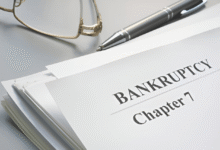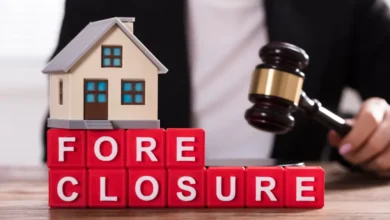Bankruptcy Fraud: Recognizing and Avoiding Pitfalls

Bankruptcy can be a lifeline for individuals or businesses facing overwhelming financial challenges. However, this legal process, designed to provide a fresh start, is susceptible to abuse through fraudulent activities. In this article, we’ll delve into the intricate world of bankruptcy fraud, exploring its various forms, consequences, and most importantly, ways to recognize and avoid its pitfalls.
What is Bankruptcy Fraud?
Bankruptcy fraud involves deceptive practices to manipulate or abuse the bankruptcy process. This can include hiding assets, providing false information, or engaging in illegal activities to gain an unfair advantage. Understanding the legal implications and various types of bankruptcy fraud is essential for anyone dealing with financial difficulties.
Common Techniques Used in Bankruptcy Fraud
Concealing Assets
One common tactic involves hiding assets to reduce the value of the bankruptcy estate. This may include transferring assets to family members, friends, or fictitious entities to keep them out of the reach of creditors.
False Information and Misrepresentation
Providing inaccurate information during the bankruptcy process is a serious offense. This can include understating income, overstating expenses, or providing false documentation to deceive the court.
Bribery and Collusion
In some cases, individuals may attempt to bribe court officials or collude with creditors to manipulate the outcome of the bankruptcy proceedings. These illicit activities undermine the integrity of the legal system.
Consequences of Bankruptcy Fraud
Engaging in bankruptcy fraud can lead to severe consequences, both legally and financially. Individuals and businesses should be aware of the potential ramifications, including criminal charges, fines, and damage to their credit score.
Recognizing Warning Signs
Sudden Changes in Financial Behavior
Unexplained shifts in financial behavior, such as extravagant spending or liquidating assets, may indicate an attempt to defraud creditors.
Inconsistencies in Documentation
Discrepancies in financial documents submitted during bankruptcy proceedings can be red flags. These inconsistencies may prompt further investigation.
Unusual Asset Transfers
Transferring significant assets to others just before filing for bankruptcy can be a sign of fraudulent activity. Such transfers may be scrutinized for their legitimacy.
Read More: What Should Small Business Owners Know About Bankruptcy?
Preventing Bankruptcy Fraud
Preventing bankruptcy fraud starts with education and transparency. Individuals and businesses should familiarize themselves with bankruptcy laws, seek legal advice, and maintain honesty throughout the process.
Real-life Examples
Examining real-life cases of bankruptcy fraud provides valuable insights. Notable examples serve as cautionary tales, emphasizing the importance of ethical financial practices.
Reporting Suspected Bankruptcy Fraud
Individuals who suspect bankruptcy fraud can play a crucial role by reporting their concerns. Whistleblower protections and government agencies dedicated to investigating fraud exist to maintain the integrity of the bankruptcy process.
Role of Professionals in Preventing Bankruptcy Fraud
Attorneys and financial advisors bear a responsibility to uphold ethical standards and guide their clients through the bankruptcy process. Professional integrity is vital in maintaining the legitimacy of the system.
The Psychological Aspect of Bankruptcy
Beyond the legal consequences, bankruptcy fraud takes a toll on individuals emotionally. Understanding the psychological aspect is essential for comprehensive prevention and support.
Bankruptcy Fraud in Different Sectors
The dynamics of bankruptcy fraud differ between personal and corporate contexts. Exploring these nuances provides a holistic understanding of the issue.
Emerging Trends in Bankruptcy Fraud
As technology advances, so do the methods of committing fraud. Staying abreast of emerging trends is crucial for adapting preventive measures.
The Importance of Public Awareness
Community education programs and media initiatives play a pivotal role in raising awareness about bankruptcy fraud. An informed public is better equipped to identify and prevent fraudulent activities.
Interview with a Bankruptcy Expert
Gaining insights from a legal professional specializing in bankruptcy sheds light on practical considerations and advice for individuals and businesses facing financial challenges.
Read More: Bankruptcy Court Proceedings: What to Expect
Conclusion
In conclusion, recognizing and avoiding bankruptcy fraud requires a combination of legal understanding, ethical behavior, and community awareness. By staying informed and vigilant, individuals and businesses can navigate financial challenges with integrity and resilience.
FAQs
How common is bankruptcy fraud?
Bankruptcy fraud occurs in a relatively small percentage of cases, but its impact can be significant.
What are the legal consequences of bankruptcy fraud?
Legal consequences may include fines, imprisonment, and a tarnished credit record.
Can bankruptcy fraud be committed by businesses?
Yes, both individuals and businesses can engage in bankruptcy fraud.
How can someone report suspected bankruptcy fraud?
Suspected bankruptcy fraud can be reported to government agencies or through dedicated hotlines.
Are there support services for individuals facing bankruptcy?
Yes, various support services and counseling are available to help individuals cope with the challenges of bankruptcy.











